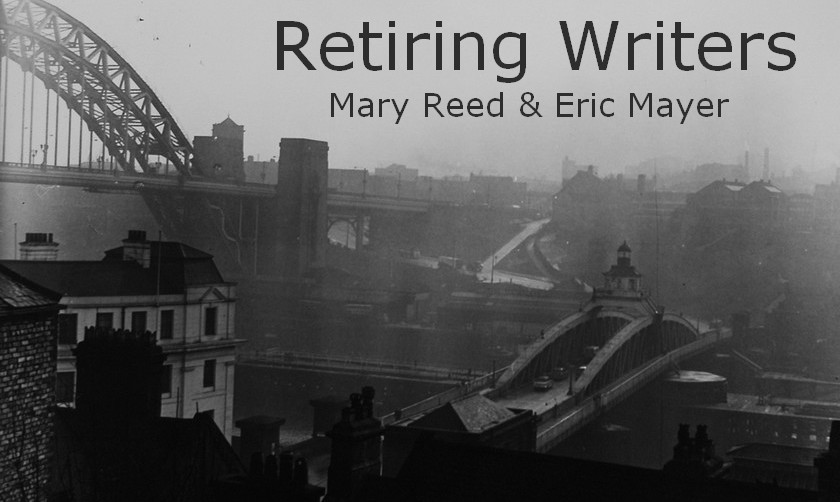Since it was published in the 1950s, Death of a Viewer hangs its toes over the precipice marking the end of the Golden Age of mysteries, but what the hay says I, let's agree this entry is grandfathered into that general area of interest.
Captain Oswald Henshaw tells his lovely young wife Sandra their financial resources are gone but suggests if he sees her in compromising circumstances with Ewen Jones, Member of Parliament for an East London constituency, there could well be financial benefits. Ewen's father is Lord Bethesda and his stepmother is worth half a million, so naturally they'd want to keep scandal -- such as Hensaw bringing an action for alienation of affection against Ewen -- from breathing nastily on the family name, not to mention the effect of such a proceeding on Ewen's political career.
Amateur sleuth Major Roger Bennion becomes involved in the case because Ewen lives in one of a number of houses built by Bennion Senior. Located near the London docks, these homes with their little gardens are let to the aged and infirm at the affordable rent of six shillings a week, repairs and rates being paid for by their landlord. Bennion occasionally inspects the houses to see all is well but on this occasion he arrives to visit Ewen, who as an MP is much better off than the other tenants, in order to ask him to move out of the house he is occupying so Lord Bethesda's elderly gardener Daniel Floss could retire and he and his wife live there.
Having obtained his tenancy in a sly and roundabout way, Ewen refuses to leave but suggests Bennion visit Welton Priory, the family home, to discuss the matter with his father and (a nice touch, I thought) the gardener. It seems several Labour MPs are shortly to meet at the priory to secretly discuss plans to ginger up the party. Bennion's presence will suggest the gathering is the usual type of house party — and while he's there perhaps he'll be able to persuade Ewen's father to buy him, Ewen, a house or give him a generous allowance! The Henshaws will also be attending, and thus the wheels of the plot begin to turn.
The viewer's death occurs in a room full of people watching TV and with very little to initially go on except a scrap of paper and a house full of suspects. Other deaths follow and Bennion and Scotland Yard's Superintendent Yeo and Inspector Allenby cooperate to solve the crime.
My verdict: This novel will remind readers of the unrest in the air in the 1950s as Lord Bethesda's guests discuss the abolition of hereditary titles and the monarchy, financial reforms to reduce or even pay off the National Debt, and changes in trade unions connected to their right to strike, while also expressing disgust at looming possibilities for easier divorces and the legalisation of what is quaintly described as the sin of Sodom and Gomorrah. Some of these matters might well make the legendary retired Cheltenham colonels who so often write to the editor of The Times weep with joy, but alas they tend to swamp parts of the earlier part of the novel and do not add very much to the plot.
However, once we get to the actual detecting the story runs along nicely. More than one guest has what they might see as good reason to act against the deceased, so most of them are suspected at one time or another and the solution roars up after an unexpected twist that caught me by surprise. I regret to say however that on the whole this novel is not one of the best I have read.


Thanks for this review. I was not familiar with this author.
ReplyDelete